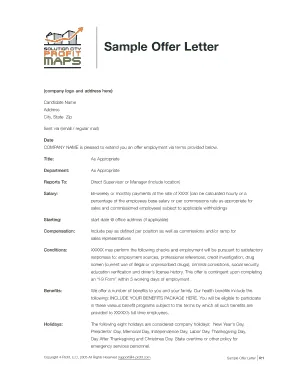Understanding Salary in Cover Letters
Navigating the salary discussion in a cover letter can be a delicate balancing act. It’s crucial to approach this topic strategically to present yourself professionally while ensuring your financial needs are considered. Your cover letter is your first opportunity to make a positive impression, and how you address salary can significantly influence the hiring manager’s perception of you. Understanding the nuances of when and how to discuss salary in your cover letter can make a big difference. Addressing it incorrectly could lead to your application being overlooked. However, when done right, it shows you’ve done your research and have a clear understanding of your worth.
Why is Salary Important in Cover Letters
Salary expectations are important in a cover letter because they help both the applicant and the employer determine if there is a mutual fit. For the applicant, it’s about ensuring that the role aligns with their financial needs and career goals. For employers, it’s a way to quickly filter candidates who are outside of the budgetary constraints for the position. Mentioning salary upfront can save time for everyone involved in the hiring process. It also demonstrates that you’ve considered your market value. If you’re under qualified, it shows that you are aware of what you can bring to the table. If you are over qualified, it ensures the company is aware of the value you provide.
The Benefits of Addressing Salary
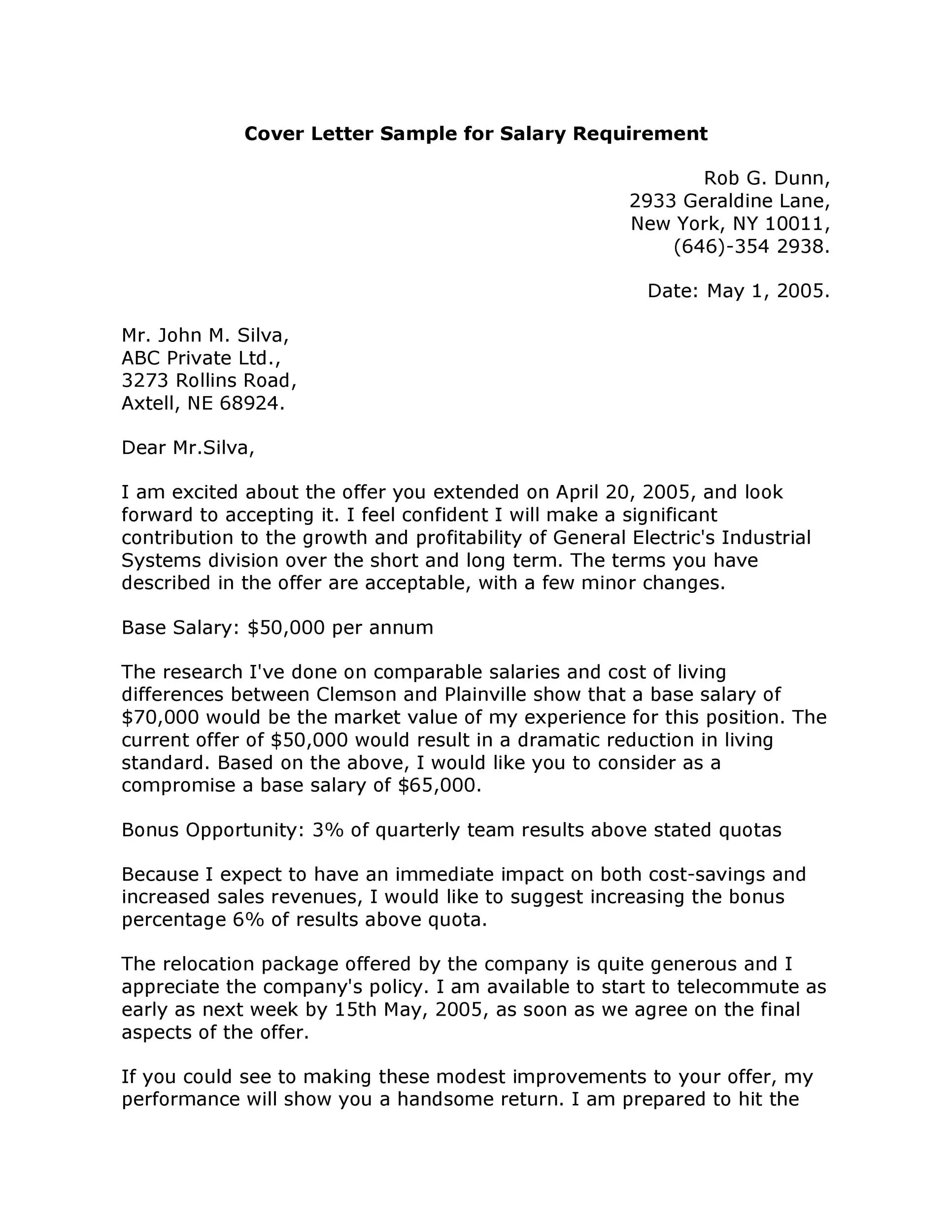
Addressing salary in your cover letter, when done correctly, can highlight your professionalism. It also demonstrates that you’ve given thought to your value and expectations. Furthermore, it shows that you’re prepared to discuss your compensation requirements early in the process. Doing so can help you avoid potential misunderstandings and ensure a smoother negotiation later on. It also helps to avoid any awkwardness later on. By addressing salary, you demonstrate transparency and a willingness to be upfront about your needs. You are showing that you are serious about the opportunity. Remember, including salary information isn’t always required, but when done thoughtfully, it can be an advantage.
When to Discuss Salary Expectations
The timing of discussing salary in your cover letter is important. Generally, if the job posting specifically asks for salary requirements, you must address it. If the job description provides a salary range, you can state whether your requirements fall within that range. Otherwise, unless prompted, it’s usually better to wait. Responding directly to a request for salary information is a good thing. When not prompted, you can briefly mention your interest in the position and willingness to discuss compensation during the interview stage. Be careful and research whether salary is a sensitive matter for the company or not. Don’t assume the company is open to discussing salary requirements during the cover letter stage.
When to Include Salary Requirements
Include your salary requirements if the job advertisement explicitly requests them. This is a straightforward indicator that the employer expects this information. However, even if it’s requested, you can still frame it strategically. Providing a salary range, rather than a specific number, can give you more flexibility. Be mindful of the industry norms and the company’s size and location. A large company in a major city will likely have a different salary structure compared to a small business in a rural area. If the job posting does not mention a salary, you might choose to defer the discussion. Indicate that your expectations align with the industry standards, your experience, and the responsibilities outlined in the job description.
The Best Place to Mention Salary
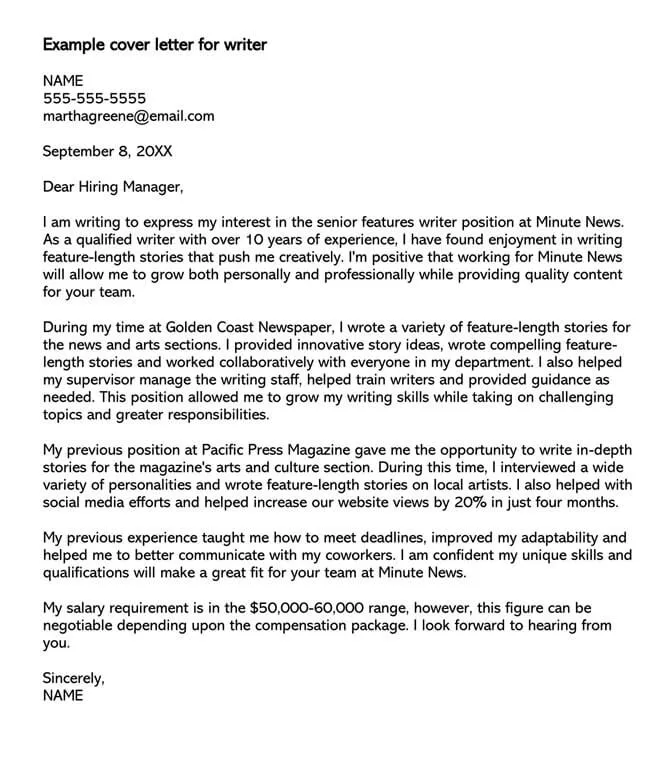
The best place to mention salary expectations in your cover letter depends on the context. Generally, it’s best to keep it brief and professional. You can include it in the body paragraph or the closing paragraph. Avoid making it the primary focus of your letter. The aim is to mention your salary expectations in a manner that doesn’t overshadow your qualifications or the value you bring. Make sure it complements the other key elements of your cover letter. The goal is to balance the need to provide the information with maintaining a positive, professional tone.
In the Body Paragraph
If the job ad specifically asks for salary information, you can address it in the body paragraph. You can mention a range that is appropriate for your experience. If you are unsure, it is better to use a phrase such as ‘I am flexible with my salary requirements’. It is also good to mention the reasons why you are interested in the role. This will ensure the letter does not seem to focus solely on money. If you are applying for a senior position, you should be specific to showcase that you know what you are doing.
At the End of Your Cover Letter
Another appropriate place is at the end of your cover letter, usually as part of your closing remarks. After expressing your interest in the role and reiterating your qualifications, you can include a brief sentence. You can use a sentence such as ‘I am open to discussing my salary expectations in more detail during the interview process’. This approach is effective, as it shows that you are willing to talk about your expectations without making it the focal point. If the role does not mention salary, then it is appropriate to leave the salary conversation for the interview phase.
How to Phrase Your Salary Expectations
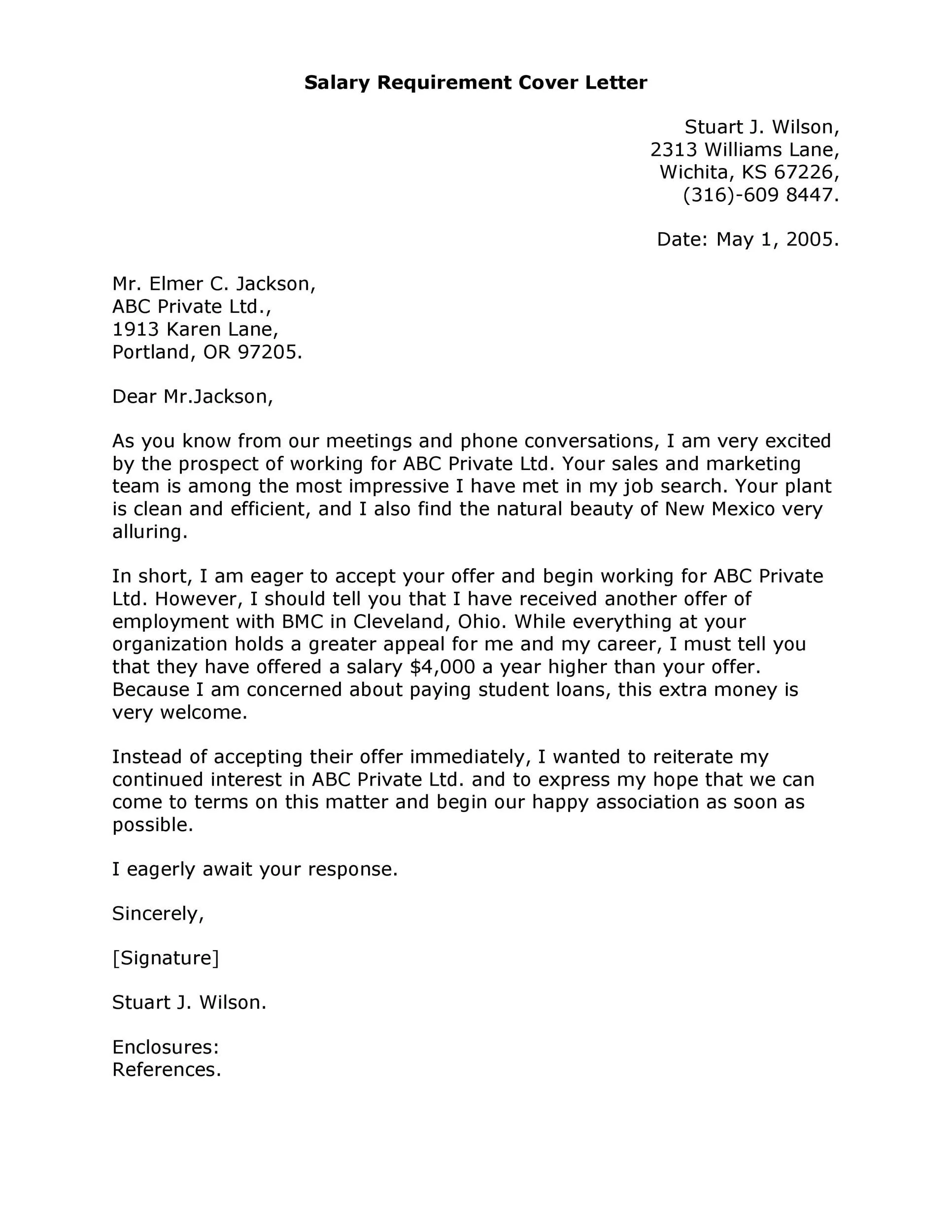
The way you phrase your salary expectations is key to leaving a positive impression. It’s best to be clear, concise, and professional. Avoid vague statements that might seem indecisive or unsure. Instead, try to provide a specific salary range or a clear indication of your expectations. Focus on the value you bring and your market worth. Use confident language that demonstrates your understanding of your worth. Be polite and respectful. It is important to keep your tone positive and collaborative. Frame the conversation as an opportunity for mutual understanding and alignment. Try to remain flexible and open to discussion during the negotiation process.
Using a Salary Range
Providing a salary range is often a smart strategy in cover letters. It provides flexibility and demonstrates your understanding of market dynamics. Research industry standards and determine a reasonable range for your experience level and the role. Frame the range to show that you are open to discussion. A range of 5-10% is common, but ensure it aligns with your needs and the role’s demands. The advantage of a range is that it gives the employer room for negotiation. In addition, a salary range can make you more competitive.
Avoiding Specific Numbers
There are times when it might be best to avoid using specific numbers, especially when you are unsure about the salary range. Using a phrase such as ‘my salary expectations are in line with the industry standard’ can be a good approach. It’s better than quoting a number that could be too high or too low. If you do not know the salary, then you should avoid mentioning it until you know more. If you know the market and are very confident, then you can provide a salary number. The goal is to mention salary in a way that doesn’t hurt your candidacy. Remember that in the negotiation stage, you can provide a specific number at that time.
Researching Salary Ranges
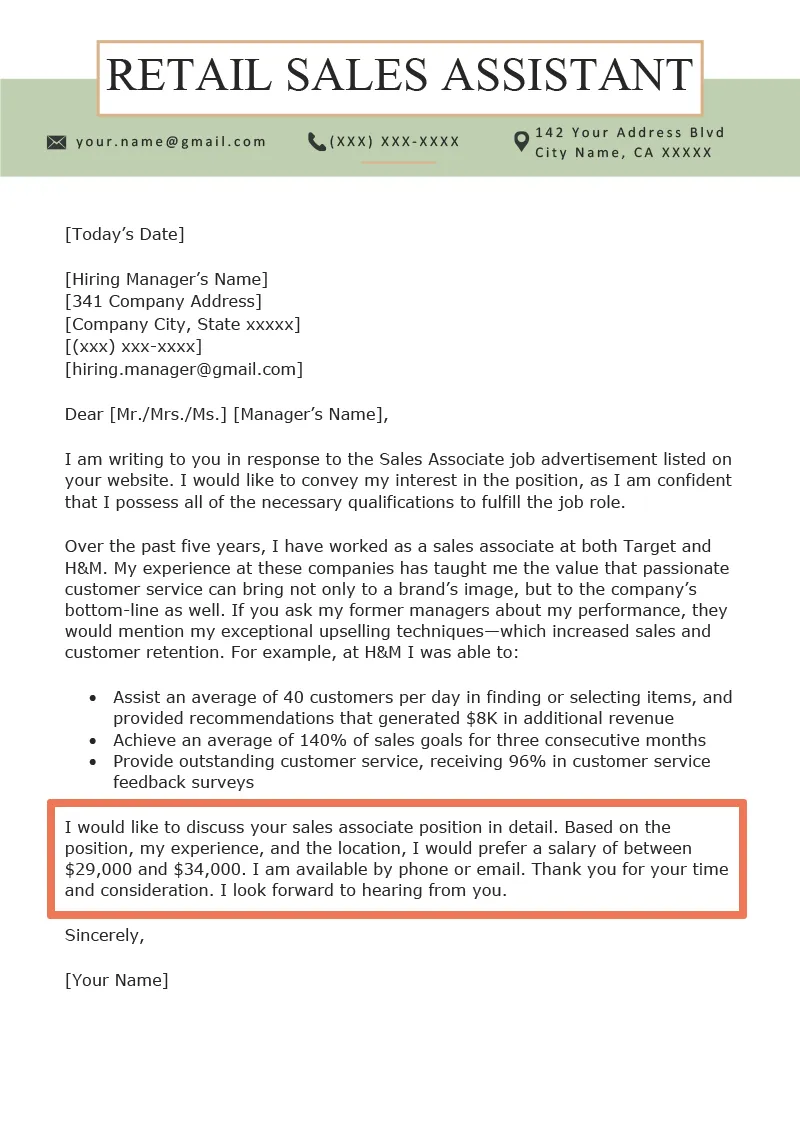
Thorough salary research is essential before you mention any numbers in your cover letter. Understanding the industry standards for the role will help you set realistic expectations. Researching can also help you determine a fair salary range. Knowing the market value of the role will strengthen your position during the negotiation. Take time to explore the compensation landscape for the specific role. You can use many resources to provide salary information and they can be used for the same role in different locations.
Tools for Salary Research
Several online tools provide salary information. Websites like Glassdoor, Salary.com, and LinkedIn Salary can provide salary ranges based on location, experience, and industry. These resources can also provide salary information on a particular company or role. Consider the role, the required skills, and the responsibilities. Also take into account experience. Take the time to research the salary. The time spent will help you ensure you are competitive and confident.
Negotiating Your Salary
Salary negotiation is a critical part of the hiring process. You can use the cover letter to set the stage for a successful discussion later. The negotiation should be based on your research and understanding of your worth. The goal is to reach an agreement that is beneficial for both you and the employer. You should know your bottom line. This will help you be confident in the negotiation process. Remember that you can always take time to think. Also be prepared to back up any salary request with your accomplishments and skills.
Prepare for the Discussion
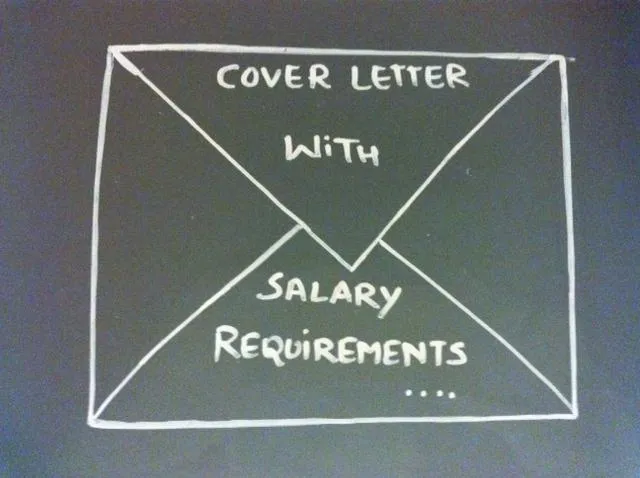
Before you enter into a salary negotiation, preparation is key. The better you prepare, the more confident you will be. Review the job description and highlight the responsibilities and skills required. Prepare a list of your accomplishments and quantify your achievements. Quantifiable achievements are very important in demonstrating value. It’s also good to know the company’s history and financial situation. Use your research to understand the salary expectations for the role. Knowing your market value will help you negotiate more effectively. When you know all of this, then you will be ready for a successful negotiation.
Salary Negotiation Mistakes to Avoid
Several common mistakes can undermine your salary negotiations. It’s important to be aware of these pitfalls to avoid them. The goal is to keep the negotiation focused on facts and value. Make sure you do your homework so you are prepared. The more preparation, the more confident you will be. Knowing what to avoid and what to do is the key to a good negotiation. It is also very important to be polite, but you must have your facts ready. Don’t let your emotions take over. The more composed you are, the greater chance of getting the salary you want.
Focus on Your Value
Focus on your value. One of the biggest mistakes is to focus solely on the salary. Instead, you should focus on the value you bring to the company. Highlight your skills, experience, and achievements. Be specific about what you have accomplished in the past. The more information you provide, the more prepared you will be. Backing up your claims with details is essential. Demonstrate how you have contributed to previous companies. Also make sure you highlight the positive impact you will bring. If the company sees the value, then they will be more willing to offer a better salary.
Highlighting Your Skills and Experience
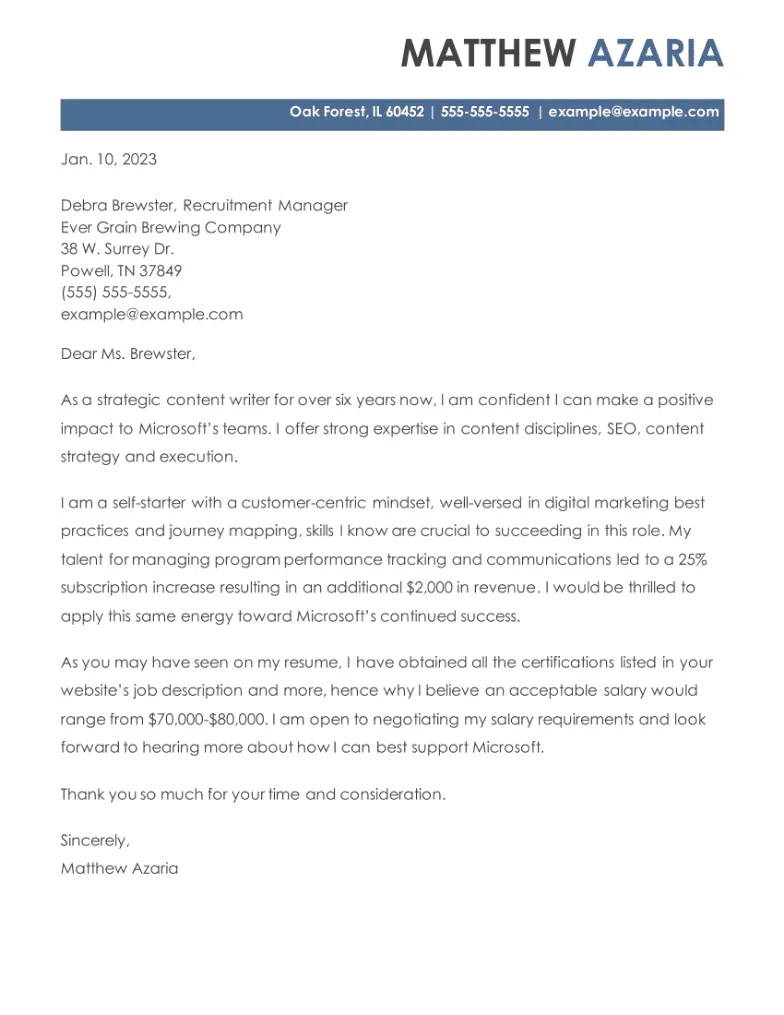
When highlighting your skills and experience, be very clear and specific. Make sure you highlight the key skills and experiences that are most relevant to the role. The more clear you are, the more value you provide. Showcase your achievements using quantifiable data. Instead of saying, ‘I increased sales,’ say ‘I increased sales by 20%’. Make it easy for the employer to see your value. Tailor your examples to the specific requirements of the job. This is very important. By showing the employer that you meet and exceed the requirements, they will be more willing to offer a better salary.
Emphasizing Your Contributions
Emphasizing your contributions is critical. The goal is to focus on what you have done for previous companies. Also focus on what you can contribute to the new company. Demonstrate how you solved problems. Highlight how you improved efficiency. Show the employer how you can help. If you can show the employer how you can solve problems, it will increase the value you have to the company. You can do this in multiple ways. You can discuss what you have done in the past. You can also provide an example of the solutions you provided. Use the STAR method. By using the STAR method, you will provide value and back up your claims.
Closing Your Cover Letter
The closing of your cover letter is the final opportunity to make a positive impression. This is where you reiterate your interest in the role, express gratitude, and make a call to action. You will want to end on a positive note and leave a strong impression. You also want to make sure the employer remembers you. Make sure the cover letter is complete and professional. The more you do, the greater chance you have of getting the job and negotiating the salary you want.
Reiterating Your Interest
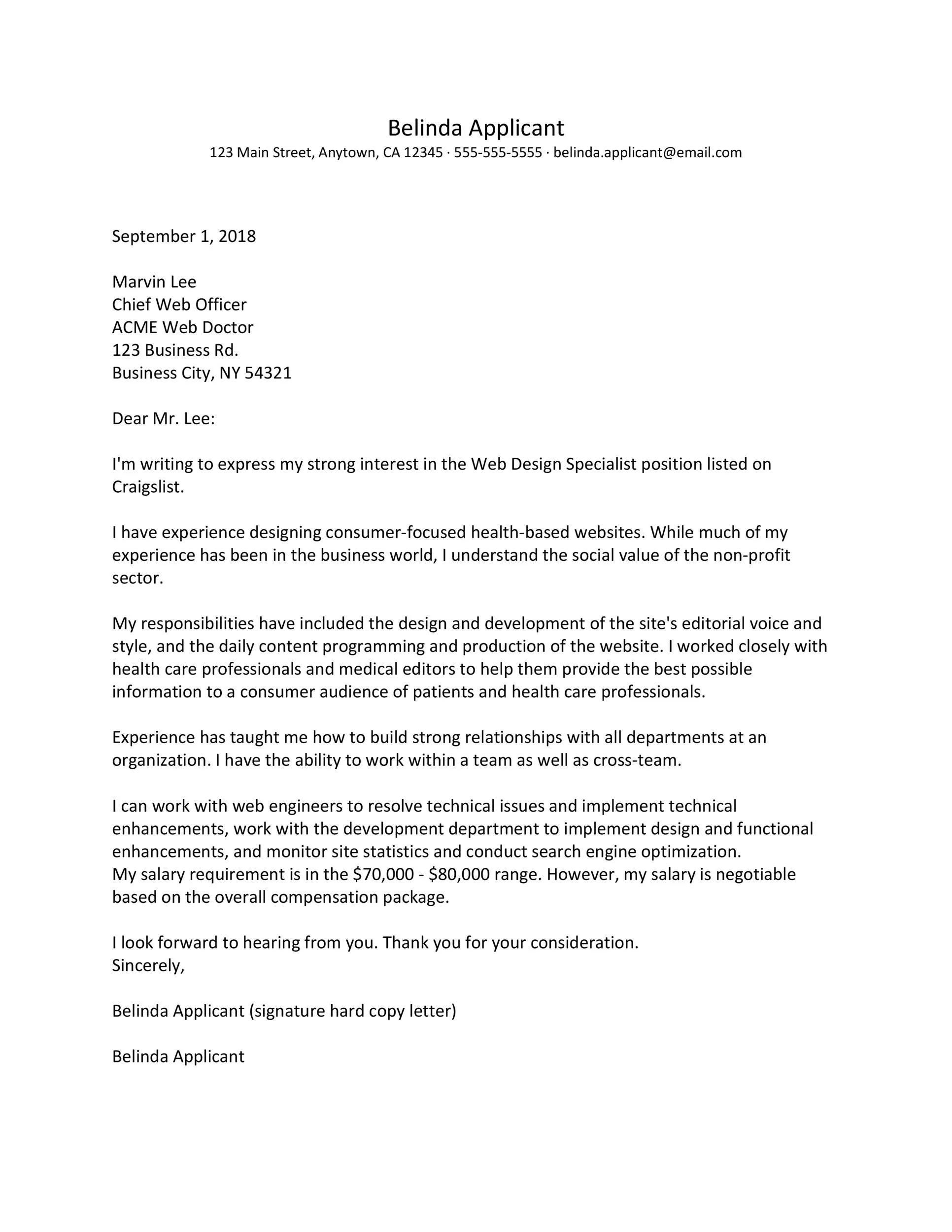
Reiterate your interest. Restate your enthusiasm for the role and the company. Show that you understand the role. Summarize why you are a good fit. Keep it concise and enthusiastic. Reiterate the key reasons why you are a good candidate for the role. Show that you are not only interested in the job, but also in the company. Show the employer you care. Highlighting this in your closing will make a great impression.
Expressing Gratitude
Always express gratitude. Thank the hiring manager for their time and consideration. Be polite and professional. End on a positive note and be sincere. A sincere thank you will help you stand out from other candidates. It also shows that you value the opportunity and the hiring process. Taking the time to express your gratitude will go a long way. This can be the difference between getting the job and not getting the job.
